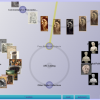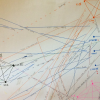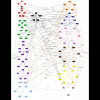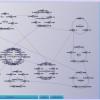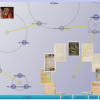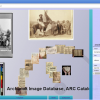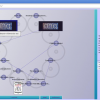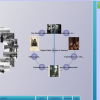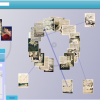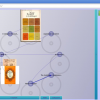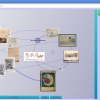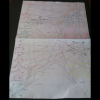Connecting the dots: Integrating modular networks and narrativity in digital scholarship
Lev Manovich posits that new media and the World Wide Web are modular or layered in nature, similar to structural computer programming in that their distinct elements are combinative while retaining independence. Modular structures and systems (such…
Listed in Article
Version 1.0 - published on 13 Jun 2022 doi: 10.25547/49D1-ZJ89 - cite this
Licensed under Creative Commons BY-NC-ND 4.0
Description
Lev Manovich posits that new media and the World Wide Web are modular or layered in nature, similar to structural computer programming in that their distinct elements are combinative while retaining independence. Modular structures and systems (such as Lego, mobile apps, computer software, and even language itself) exchange precision, specific connectivity, narrative stability, and a focus on progressive products for flexibility, general compatibility, adaptiveness and a focus on aggregative processes. These attributes are well suited for new knowledge environments: Peter Schillingsburg sees modularity at the heart of dynamic digital collaboration and Susan Brown (et al) liken the modularity of digital projects to the cumulative nature of academic periodicals but caution that such projects are still often judged “as if they were a book,” or by their apparent finishedness. While scholarly journal articles and monographs, as finished products of scholarly activity, are not often constructed to demonstrate modularity or to function as modular components in broader arenas of scholarly communication, they could be reimagined as such (beyond citation). This is something that the NewRadial environment encourages through its modular design and in the kinds of modular scholarly communication that it facilitates.
Cite this work
Researchers should cite this work as follows:
- Robinson, A., Saklofske, J., Research Team, I., (2022), "Connecting the dots: Integrating modular networks and narrativity in digital scholarship", HSSCommons: (DOI: 10.25547/49D1-ZJ89)
Tags
Notes
Original publication: Robinson, A., Saklofske, J., & Team, T. I. R. (2017). Connecting the dots: Integrating modular networks and narrativity in digital scholarship. Digital Studies/le Champ Numérique, 6(1). DOI: http://doi.org/10.16995/dscn.266 Arbuckle, Alyssa, Nina Belojevic, Matthew Hiebert, and Ray Siemens, with Shaun Wong, Derek Siemens, Alex Christie, Jon Saklofske, Jentery Sayers, and with the INKE and ETCL Research Groups. 2014. “Social Knowledge Creation: Three Annotated Bibliographies.” Scholarly and Research Communication 5.2: 120pp. DOI: http://dx.doi.org/10.16995/dscn.266.
Publication preview
When watching a publication, you will be notified when a new version is released.
